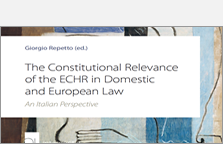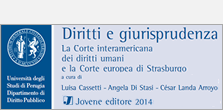Fin dall’approvazione della Convenzione per la salvaguardia dei diritti dell’Uomo e delle libertà fondamentali (Roma, 4 novembre 1950, di seguito CEDU), si è discusso sull’applicabilità, alle liti con il Fisco, delle disposizioni della stessa riguardanti le garanzie nei procedimenti giurisdizionali.
In particolare, la questione è tutt’oggi aperta rispetto ai giudizi aventi ad oggetto la debenza dei tributi in relazione alle modalità di attuazione delle relative pretese, così come pure rispetto ai giudizi per l’accertamento di violazioni di carattere non penale.
In relazione al Diritto Tributario, e con particolare riferimento sia all’ambito processuale che a quello dell’attuazione amministrativa del tributo, la ricerca si propone quindi di monitorare il susseguirsi degli interventi delle varie componenti operatrici del diritto, prestando particolare attenzione all’evoluzione degli orientamenti giurisprudenziali della Corte Europea dei Diritti dell’Uomo, tutto ciò al fine di verificare se possano individuarsi utili spunti ad una più efficace tutela del contribuente, da perseguirsi anche attraverso il progressivo adattamento delle attuali regole sul contenzioso tributario – ancora caratterizzato da peculiarità sue proprie (es. il divieto di prova testimoniale) – al fine di pervenire, anche in questo settore del diritto, all’applicazione dei principi sul c.d. “giusto processo”. Del pari ci si propone altresì di verificare se possano individuarsi utili spunti verso l’indifferibile adeguamento di alcune regole relative alla fase dell’attuazione amministrativa del tributo, in specie con riferimento all’esercizio dei poteri istruttori da parte del fisco, con l’obiettivo di pervenire all’affermazione dei principi sul c.d. “giusto procedimento”. In altri termini, si cercherà di verificare se le guarentigie convenzionali possano dirsi riflesse – ed in qual misura – nelle regole interne, sia di rango costituzionale che di rango ordinario, sul “giusto processo” e sul “giusto procedimento”, giacché l’applicabilità di tali guarentigie, rispettivamente al contenzioso tributario e allo stesso procedimento di controllo e di accertamento del tributo, non dovrebbero ormai essere più messe in discussione onde assicurare adeguato riconoscimento ai principi tutelati dalla CEDU. Da ultimo, va segnalato che una recente giurisprudenza della Corte EDU ha affermato la legittimità di talune misure che ci sembra possano essere definite come “preventive” nell’assicurare un (più che) efficace contrasto alla (potenziale) evasione rispetto al canone radiotelevisivo. Tale arresto giurisprudenziale sembra però non tenere nell’adeguata considerazione il principio comunitario della “proporzionalità”, con il che paiono non potersi escludere ulteriori sviluppi sul tema della tutela del contribuente così come apprestata dalla giurisprudenza della Corte Europea dei Diritti dell’Uomo, anche alla luce dei principi recati dall’aquis communautaire.
[ leggi tutto …]
leggi tutto …]The Applicability Of The ECHR To The Tax Process And Tax Proceedings. The Field Of Investigation.Since the adoption of the Convention for the Protection of Human Rights and Fundamental Freedoms (Rome, November 4 1950, hereinafter ECHR) there has been a discussion about the applicability, to disputes with the tax authorities, of provisions relating to guarantees in court proceedings.
This is due to the fact that article 6 par. 1 does not make an explicit reference to this particular area of jurisdictional activity (except in respect of proceedings for the enforcement of penalties for tax crimes, which fall into the category of criminal matters expressly protected by the Convention). In particular, there remains a question as regards tax judgments, in relation to the implementation of tax claims, as well as in comparison with decisions dealing with the detection of non-criminal tax violations.
As noted, there are still margins of uncertainty about the value that can be assigned to the wording of this provision, concerning the listing of the subjects covered by the guarantees of ECHR art. 6.
More specifically, if the rule in question is attributed a purely preceptive value, there follows a strict enucleation of the areas where conventional principles can be applied. Diversely, if only a classificatory and descriptive significance is attributed to art. 6 par. 1 of the Convention, the term “civil” employee could annex the meaning of “any non-criminal process”.
The Traditional View In European And Domestic Jurisprudence
It should be just noted that the above-mentioned issues have also been put to the test of jurisprudence.
With regard to the jurisprudence of the ECHR, this, in a first extended period, ruled out the possibility that a trial, in which the application of tax is under question, can be covered by the guarantees of the Convention, arguing that the notion of “civil law” is to be determined on the basis of the Convention and not on the basis of domestic law and that, therefore, the financial nature of an obligation is not in itself decisive for the civil nature of this claim. Underlying this reasoning is the theme of “fiscal interest” that, according to the reconstruction originally made by the Court, allows for the compression of the conflicting interests of the taxpayer, including those relating to the effectiveness of judicial protection.
This restrictive approach has been adapted by the domestic jurisprudence of the Supreme Court of Cassation, which, according to the traditional approach to taxation is not attributable to legal positions on civil matters, and does not therefore enter into the areas protected by the ECHR. In addition to this first premise, the scope of applicability of the “Pinto Act” (Legge Pinto), given the functional link between this act and the ECHR, creates an insurmountable framework within the limits set by the Convention, by which – according to the Supreme Court – exists the corollary whereby the same national law can not be applied in the case of excessively lengthy tax proceedings.
Recent Developments In Case-Law
Despite the above, it should be noted that there is currently underway a constant (and perhaps inevitable) development in case law that is morphing into a progressive expansion of conventional guarantees, with reference to both tax trials and tax proceedings.
Indeed, the Strasbourg Court has recently recognized the applicability of the guarantees of the Convention to cases in which tax penalties can be compared to criminal penalties due to their punitive nature. Similarly, the same Court has also recognized the need to ensure effective protection to the taxpayer who has been the subject – incorrectly – of the powers of investigation by the tax authorities during their enquiries.
Such developments in case law, however, have also been accompanied by a careful examination of the impact of the tax doctrine on the same, as well as the problem of conventional coverage, even in cases where trials have as their object the establishment of entitlement to repayment of charges not due or overpaid; issues – in some particular cases – may rest on terrain of a civil nature, even if such cases were categorized by a discipline related to a tax provision.
In any case, it has indeed been found that the evolution of transnational jurisprudence has not yet been followed by the Supreme Court, with regard to the applicability or otherwise of the Pinto Act (Legge Pinto), as it has maintained its original imposition, while also overcoming the problem of comparison with the provisions of Article 111 of the Italian Constitution, having excluded the applicability of the tax process.
Research Objectives
In relation to Tax Law, and with particular reference to tax trials and the administrative implementation of tax rules, this research proposes to monitor the sequence of operations of the various actors of tax law, while paying particular attention to the evolution of the legal guidelines of the European Court of Human Rights, all in order to assertain if these guidelines can offer useful insights leading to more effective protection for the taxpayer, to be pursued through the progressive adaptation of existing rules on tax procedures – even if they are still characterized by their own peculiarities (i.e. the prohibition of testimonial evidence) – in order to achieve, in this legal area, the application of the principles of “due process”.
Similarly, it is also proposed to see if useful insights can be located in the adaptation of certain rules relating to the administrative implementation phase of tax rules, especially with reference to the exercise of the powers of investigation by the tax authorities, with the aim to achieve the affirmation of the principle of “due proceedings”. In other words, this research intends to verify whether conventional guarantees are reflected – and to what extent – in internal rules, be they of constitutional status or ordinary rank, in “due process” and “due proceedings”, and the applicability of such guarantees, respectively, during the same litigation process, and enquiries into fiscal obligations, that should no longer be challenged to ensure adequate recognition of the principles protected by the ECHR.
Finally, it should be noted that recent ECtHR case-law has affirmed the legitimacy of certain measures that can be defined as “preventive” in ensuring a (mostly) effective contrast to (potential) TV license fee evasion. This case law, however, does not seem to adequately take into account the EU principle of “proportionality”, and further developments on the issue of protection for the taxpayer can not be excluded, as prepared for by the case law of European Court of Human Rights, in light of the principles of the aquis communautaire. (*) The author (S.Cociani) wishes to thank Dr. Pietro Frascarelli for his assistance in the organization of materials, and the research of relevant literature and case-law.













